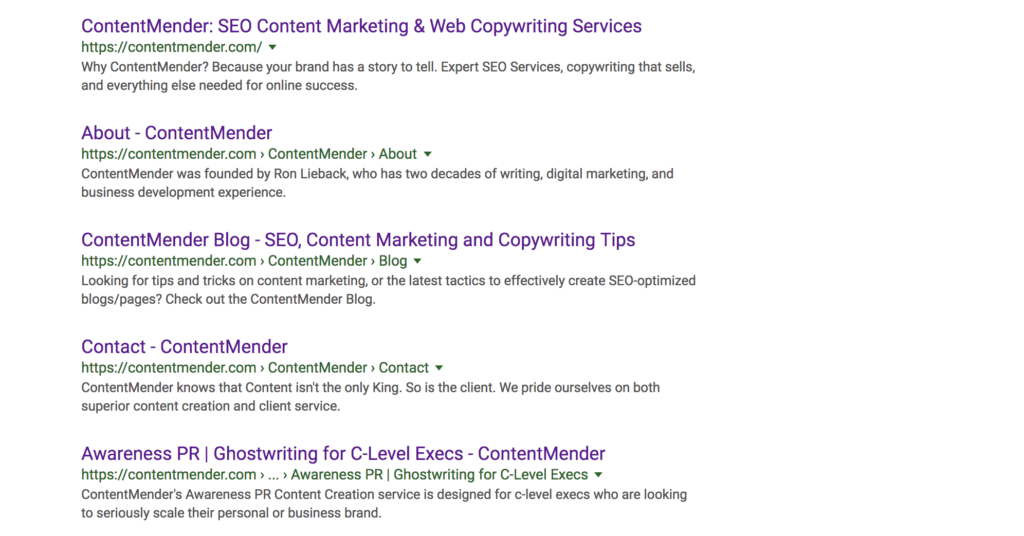SEO for New Business
Ah, the rush of starting a new business. It’s exciting, rewarding, and empowering with just the right touch of exhausting. It’s also, uncomfortable and confusing, pushing many small business owners to delve outside their cumulative trade or industry knowledge.
Successfully running a business often means becoming intimately familiar with tasks and concepts just outside your comfort zone. For many, Search Engine Optimization (SEO) represents one of those tasks. You know you need it, but where, oh where do you start?
Fortunately, there are a lot of great tools and guidance that can help small business owners as they build solid foundation. And taking the time to do so from the start can ward off months – if not years – of costly errors and unnecessary site maintenance.
It can broaden your market reach and expedite brand awareness, making it an investment worth making. In fact, by 2020, SEO spending is expected to reach $80 billion annually – a number that should speak volumes about the importance of this single strategy and how much of your time and budget it should claim as your business matures.

That said, it’s important to be realistic about SEO and how it fits into your immediate plans. SEO is something that should be considered and implemented from the start, but may not yield immediate results.
In that sense, it’s a lot like an investment, allowing for exponential growth over time, but if you don’t invest now, your brand will suffer in the future. As such, to get your business off to a solid start and an even more promising future, these “SEO for new business” tips.
1. Create a mobile-friendly site: When it comes to SEO, one of Google’s primary goals is to serve users highly relevant, quality content. There are numerous factors that help Google determine what that means, but thanks to the mobile-first indexing, which indexing the mobile version of a site first, businesses with a well-designed, mobile-friendly site are likely to have an edge over those that don’t.
2. Encrypt your site: It’s likely you’re aware of the difference between “HTTP” and “HTTPS,” but did you know that it can have an impact on your SEO efforts? HTTPS encrypts the communications between a web server and a browser, securing sessions for users. Aside from increasing the likelihood of conversions, improving security on your site can also increase your search rank, as Google factors this security measure into their ranking algorithm, favoring those that implement it.
3. Identify your target audience: Organic search results depend on a variety of factors, but one is relevancy. The only way you can truly establish relevancy, in this case, is to first identify your audience. Be aware of your audience, their needs, and how your product or solution fits into their lives.
4. Answer questions: Why do you use Google or other search engines? Chances are it’s to answer a question, whether it be “what is SEO and how it works” or “where are leprechauns from.” As you begin to plan out your website – a process that will include the next tip, keyword research – it’s helpful to identify the questions your target audience will ask and how your product or service may help them find the answer.
In addition to helping you establish a starting place for keyword research, asking and subsequently answering key questions can help you develop content topics that will prove to be useful across multiple channels, including social media, email, and of course SEO.
5. Keyword research: One of the major components, and frequently the one most closely associated with SEO is keywords. These are the crumbs that help Google, and therefore users, make there way from the search bar to appropriate website.
Keyword research helps you determine what terms and phrases (i.e., long-tail keywords) that drive demand and a qualified traffic. There are a lot of really great – and free – resources out there to help you get started, including Moz’s Keyword Explorer, Google Trends, and Google Adwords Keyword Planner Tool.
6. Map your site: Once you have selected your target keywords, the next step is keyword mapping, or deliberately and thoughtfully assigning specific keywords to specific pages. There are a variety of ways you can complete this task, but it helps to have an on-page optimization document that can help you keep track of your efforts and prevent you from over optimizing a specific page. The homepage is frequently the victim of over optimization, so keep that in mind.
7. Don’t keyword stuff: Keyword stuffing is exactly what it sounds like. In an effort to boost ranks and adhere to “shady” SEO tactics of yore, pages are filled with seemingly relevant keywords. The problem? Google, and likely your audience, know better and your site will be marked as spammy. It’s not going to end well, so just don’t do it.
8. Create clean and concise title tags and meta descriptions: Titles tags specify the title of your website and show up in search results. Similarly, meta descriptions describe the contents of the page and are frequently used as “snippets” in search results, or that body of content that shows up directly under the title tag. From a technical standpoint, these should crafted to help Google determine relevancy. From a human standpoint, they should be concise and easy to understand. Don’t chalk these up to logistical necessities. Treat them as a first impression, because that’s what they are.

9. Plan for users, not crawlers: Crawlers index data on the website and often hold keys to desired rankings; however, they shouldn’t be the primary focal point of your efforts. The best SEO strategies are those that strike a delicate balance between search algorithms and human needs. That said, if you’re just checking off boxes in an effort to appeal to an algorithm, you’re going to lose a very important part of the marketing equation – customers.
10. Get a Google My Business Account: Today, telephone books are antiquated paperweights – literally – but that doesn’t mean we’re left without a central information hub for commerce contact information. Think of a Google My Business account as the digital version of a business card, phone book, and billboard. This notion is true for potential customers, who will be able to determine your legitimacy, location, and contact information quickly. It’s also true for Google, which uses it to prioritize results and help users identify local businesses that are relevant to their inquiries.
11. Avoid anything that sounds too good to be true: There are some marketing channels, like PPC and Email, that are great for immediate results. SEO is typically a slow and steady race, but one that can have a much stronger ROI. If you come across a resource, consultant, or company that promises you immediate results, be extremely skeptical. Google constantly works to create an user-focused experience, and that means filtering out black hat marketing tactics that only serve site owners. You’ll waste time and money and risk-taking on burdensome penalties
12. Work with Influencers: Influencer marketing is a strategy in and of itself, but it can have a significant impact on your SEO efforts as well, often without a hefty budget. Influencers, or people who have a large social media following, can be leveraged to spread the word about your product, but they can also help you collect valuable backlinks – links back to your site – which plays a considerable role in search engine rankings. As a side note, don’t underestimate the power of local influencers, particularly if you’re trying to drive traffic (digital and foot) to a brick ad mortar location.

13. Check your metrics regularly: SEO is not a “set it and forget it” strategy. Instead, it requires diligent and ongoing monitoring of key metrics, including page speed, bounce rates, conversions, referral traffic, etc. Do yourself a favor and sign up for a Google Analytics account and use it as a regular tool in your monthly or weekly reporting efforts
14. Curate quality content: Content marketing should be a part of your strategy, but SEO and content marketing go hand in hand. The higher the quality of your content, the more likely both Google and consumers are to find it useful. Further, good content is shared, linked to, and relied upon as an indication of credibility. When paired with insightful keyword research and mapping, content is indispensable.
15. Consider outside help: this may sound like a plug, but the truth is that in many cases, just like you’re intimately familiar with your product or service, an agency or experienced contractor is extremely knowledgeable on theirs. This translates to more efficient strategies and cost-effective strategies, particularly when it comes to dealing with the finer nuances that only consistent competition and a frequently changing digital landscape can create.
Concluding Thoughts
Small business owners have a lot on their hands, and in the early days, it can be difficult to determine what aspects of their business to focus on. For most, a web presence is a prerequisite for growth, but that requires far more than simply purchasing a URL. Instead, business owners that want to have a digital presence must work towards gaining a place in organic search results. The best way to do that? Build out your site with SEO in mind.



